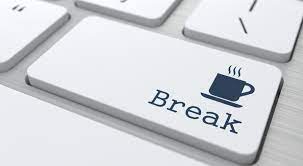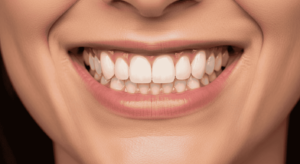Break time during the day is beneficial to mental health. Anxiety, worry, and weariness can all be alleviated by taking a break. We hear about exhaustion and burnout issues from business leaders, particularly CEOs and HR executives, Students, housewives etc. Allowing yourself time to recharge during the day is a simple strategy to avoid work tiredness. We are not designed to be “on” 24 hours a day, seven days a week.
Guidelines for taking breaks
1. Take longer breaks in earlier period of time
Taking a rest prior to when your body and brain are entirely weary is more beneficial. When drowsiness and poor attention begin to set in, it is common to take the very first breaks of the day at lunch or in the mid-afternoon. According to studies, taking a longer break in the morning – between 10 and 11 a.m. – is better (does not matter if it is your peak productivity time). You can use various apps which can aid you to track time just like LMS. Using them will help you to have good insight about how you are spending your time and accordingly plan strategies for it.
It all boils down to what’s the best and productive for you in the end. Experiment with your schedule to see when you’re most productive and when you need to take a longer break.
2. Turn off your computer
You would be able to refresh and concentrate better when you return to your desk if you take your mind off work. On your breaks, you must do something that will revitalise you. Here are a few suggestions for work breaks:
- Yoga or stretching can help you relax.
- A book being read
- Taking care of a simple task, such as washing clothes or washing the dishes.
3. Purpose your attention on eating
Put your phone aside and let your thoughts rest if you’re having a lunch break. Take a time to think about what you’re eating. Concentrate on the food’s flavour, aroma, or texture. Slow down and take it all in! Take a moment to be grateful for everything you have.
4. Change the setting
Take a stroll outside or visit a coffee shop. Physical rejuvenation will aid mental rejuvenation.
You may also use this time to clean up your desk or tweak the layout a little.
5. Take a break from work and take a good nap.
Nap chambers are common in offices because napping boosts productivity. It may sound counterintuitive, but a nap is the best way to recharge your batteries.
Most people benefit from 10-20 minute naps. If you take a nap for too long, your alarm may wake you up while you’re still sleeping deeply, reducing your productivity. So take a break from continuous lectures available on teacher apps or doing work from home, go and take a good nap.
6. Engage in socialization
Talking to or socializing with other people can aid you to clear your mind and work through the problems you’re facing right now. Taking a moment to socialise might also help you refuel and renew! It’s also a nice respite from the computer screen.
7. Take small breaks on a daily basis
If you’re confused about how often you should take a break at work, keep in mind that merely 1-minute breaks can help. A 5-minute break after every half hour or a 15-minute break every one and half hour are examples of standard intervals. Try pausing for a moment of attention at the end of each hour. It’s healthy to walk around for a while. Experiment with various break lengths to determine what works best for you.
8. Take a break if you feel you need it
When you choose to take a break at work, it’s best. Pay attention to what your body is saying. Give your body the rest it requires when you notice your attention slipping or exhaustion setting in. To gain the full benefits of work breaks, you must figure out what works best for you.
9. Increase your job involvement
Breaks at work can boost employee job engagement and job satisfaction if your corporate culture promotes them. Taking pauses during the day can help you relax, boost your mental health, and maintain a healthy work-life balance. All of these factors influence employee satisfaction and engagement.
10. Enhance your mental health
Just like our bodies, our minds require rest as well. Taking breaks might assist us in developing the habit of looking after ourselves.





Be First to Comment